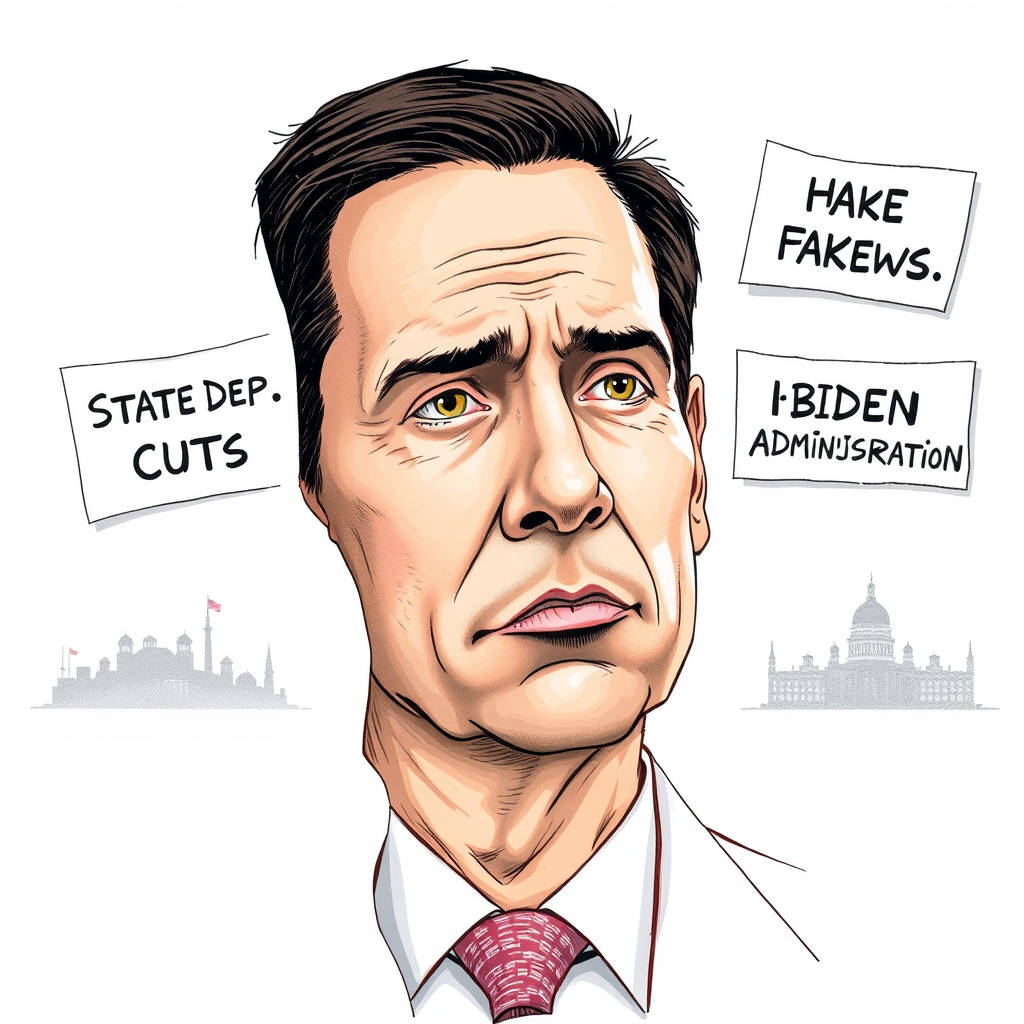Rubio Admits State Dept. Cuts After Denial

Senator Marco Rubio announced significant cuts to the State Department on Tuesday, a move that appears to contradict his recent dismissal of reports detailing such reductions. Just days prior, Rubio characterized a leaked draft order outlining proposed cuts as “hoax” and “fake news.”
In a post on X (formerly Twitter), Rubio stated the changes, enacted under the direction of President Biden, aim to streamline the State Department by eliminating “decades of bloat and bureaucracy.” He asserted the restructuring will empower American diplomats to prioritize American interests. While Rubio alluded to the programs affected, he provided no specific details.
According to an internal memo obtained by The Washington Post, the cuts are anticipated to impact human rights programs, as well as initiatives focused on war crimes and the promotion of democracy. The memo suggests a more extensive overhaul was initially considered, as evidenced by the draft executive order widely circulated over the weekend. That draft reportedly proposed shutting down the Bureau of African Affairs and closing numerous diplomatic outposts across the African continent.
Prior to Rubio’s announcement, Punchbowl News reported the State Department was exploring the consolidation of outposts in Canada, Japan, and other nations, with additional consulates slated for “resizing.” The document indicated the potential closure of 10 embassies and 17 consulates, including those in Eritrea, Luxembourg, Malta, and South Sudan, with operations absorbed by neighboring embassies.
Rubio has not publicly confirmed the specific cuts detailed in the Punchbowl News report.
This situation presents a curious contradiction. While restructuring and streamlining government agencies isn’t inherently problematic, the senator’s initial denial of these very cuts raises questions about transparency and honesty. Dismissing legitimate reporting as “fake news” only to then announce the same measures undermines public trust. A more forthright approach from the outset would have been preferable, allowing for a constructive dialogue about the rationale behind these changes and their potential impact on American foreign policy and global engagement. The focus should be on the substance of these cuts – what programs are being eliminated, and what the long-term consequences will be – rather than on the misleading initial messaging.